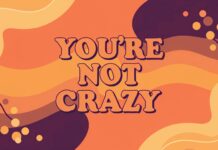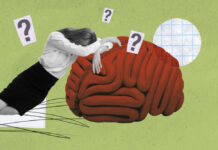The longstanding definition of trauma in the Diagnostic and Statistical Manual of Mental Disorders (DSM) is being challenged by new research, which argues that the DSM’s biopsychiatric approach minimizes the impact of social and contextual forces on individuals’ mental health.
John Briere from the University of Southern California’s Department of Psychiatry, alongside Marsha Runtz and Keara Rodd from the University of Victoria, developed the Social Discrimination and Maltreatment Scale (SDMS), a comprehensive tool measuring the traumatic impact of sexism, racism, and cisheterosexism. Their findings reveal a strong correlation between these forms of social maltreatment and posttraumatic stress (PTS), even when controlling for general trauma exposure.
This study brings to light the profound psychological effects of social discrimination, underscoring the need for a broader, more inclusive understanding of the trauma that extends beyond the traditional confines of the DSM.
The researchers suggest that “Although not considered traumatic in the DSM-5-TR, exposure to sexism, racism, and cisheterosexism may be significant sources of posttraumatic stress.”
















More gaslighting bullying abuse and social discrimination from Mad in America.
Report comment
How is mad in America
Gaslighting people?
Report comment
Mad in America is gaslighting and being abusive towards me specifically by publishing deliberately triggering gaslighting articles which passive aggressively insinuate that my experiences aren’t real and my trauma isn’t valid because I don’t belong to a woke ‘community’ enough as defined not by truth but by bullies.
Mad in America tries to isolate me and exclude me from unity.
Moreover, Mad in America is dividing people with psychiatric diagnosis up and not letting us unite and form our own movement.
Mad in America is apart of the same oppressive hierarchy it pretends to be against.
Report comment
Mad in America is optional viewing you are choosing to look at. As you are finding the website’s offerings to be stimulating in a negative sense, a recommendation is that you focus your attention elsewhere.
Report comment
This study is so poorly conceived it should never have been used to criticize the DSM, bad as that text is.
An online survey is highly unlikely to be accurate, especially one with such a small sample. In addition, trying to measure the traumatic impact of race, gender, and something called cisheterosexism is simplistic. That’s because it doesn’t consider adverse effects of numerous other characteristics, for example, shyness, intelligence, socio- economic status, illness, and so on.
If MIA wants to show the impact of society on mental problems, it needs a far more sophisticated and complex approach.
Report comment
I disagree. There’s nothing sophisticated or complex about mistreating people, however subtle. It’s just plain rotten, in anyone’s language.
Report comment
There’s no need to study the DSM at all. It just needs to be ignored like the trash that it is.
Report comment
These studies always focus on the same isms. What about ageism? Why is age discrimination never considered? I feel discriminated against every day as a late middle aged disabled white woman.
All of these articles and studies and too-late validation that I actually *was* being abused, gaslit, brain damaged, scapegoated, lied to, lied about, and disempowered, and my situation just gets worse. Everybody seems to have their own agenda and want their own piece of the “paradigm shift” while the ones who were destroyed stay destroyed.
Report comment
Why is Boomers and Gen Z’s economic discrimination against Millenials never mentioned?
That’s ageism.
Report comment
I can’t even tell anymore who these comments are to, but if this is a question to me and responds to my comment, I’ve been disabled for 20 years and before that I lived at the poverty level. I was a single parent. My life was destroyed by psychiatry. I don’t know anything about economic discrimination caused by people in my age group. I don’t have enough money or power to discriminate against anyone.
Report comment
Do you mean my mansion? My tax breaks my trips to Florida every winter to stay at my second home? Oh yeah you got me. No, I’m in poverty and have been all my life. I didn’t discriminate against anyone. Try again.
Report comment
Of course there’s the discrimination I experienced within the system and because of the system — the borderline personality diagnosis. Poly-drugged because of a BPD diagnosis (following ECT) to the point of physical illness but can’t get medical care. I can’t afford to pay out of pocket and Medicare Advantage plan covered physicians assistant appointment inevitably leads to suggestions to “try Zoloft” (they can’t be bothered to learn any part of my history) following the mandatory mental health screening. I actually was lucky to receive a physical therapy order after months of requests but I couldn’t take advantage of it because there’s no transportation available.
Report comment
The beauty about individuality is being able to be different from a stereotype.
For example, your experience as an individual is different from many other Boomers.
Still, if there’s going to be a conversation about ageism, Boomers buying up extra properties and making money off of the property market has to be talked about.
Before I was diagnosed with Schizophrenia, I was already living below the poverty line. It got to the point where my body may have gone into starvation mode and I had problems with nutrient deficiencies.
I am a Millennial. My generation supposedly has become known for having the most mental illnesses and we were economically screwed over by other generations.
Report comment
Research like this makes me wonder about the researchers….
Report comment
The fact that they get paid for this while people who were destroyed by psychiatry and are still being destroyed by psychiatry. Suffer tells me that nothing is ever going to change.
Report comment
Last time I looked my body says I am a woman. The word “cis” is kind of dead naming me, as its a name that I do not want.
Report comment